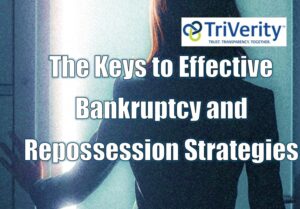The National Consumer Law Center (NCLC) is proposing major changes to article 9 of the Universal Commercial Code (UCC) which would materially affect consumer lending and how repossessions are done. If states adopt this latest proposed revision of the UCC, it would dramatically change repossession and lending practices and increase the potential for law suits.
The UCC is a model or recommendation for what a particular state’s commercial code might include; by itself, the UCC has no legal force. However, in practice, every American state has adopted some version of the UCC, and those state versions, known as the states’ commercial codes (for example, the Texas Commercial Code), do have the force of law—in fact, they are laws. Article 9 is the section which covers “Secured Transactions.” There are so many changes being proposed that to try to list them all here would turn this article into a small book. You can click on the following link to read the NCLC’s proposal in its entirety: Model Consumer Amendments to Uniform Commercial Code Article 9. Below are some of the changes being recommended in this publication.
- 9-609 (d) defines breach of the peace to include failing to stop a repossession upon the objection of any individual who appears upon the scene of the repossession.
- 9-609 (e) states that a repossession is not complete until the collateral is secured upon the repossessor’s lot.
- 9-609 (f) requires a 30 day Right to Cure in all cases and limited to 3 times per year.
- 9-609 (h) requires notification to the debtor 30 days prior to the repossession of the intent to repossess and informing them what they need to do to cure the default and prevent repossession. (30 day Right to Cure)
- 9-610 (g) requires the secured party to seek a rebate of the unearned portion of any insurance, service contract, or other agreement related to the collateral, to the extent that the secured party has the right to seek such a rebate.
- 9-612 (c) states that the consumer must be given a 25 day notice before the collateral may be sold
- 9-614 (D) gives the consumer the right at any time before disposition to redeem the collateral by paying its market value or the amount owed, whichever is less.
- 9-614 (D) (7) states that if within 20 days of the notice of disposition, the secured party receives all past due amounts (not including accelerated payments) and its reasonable expenses of taking, holding, preparing for disposition, and processing the collateral, the secured party shall promptly return the collateral to the debtor and reinstate the terms of the obligation as set out prior to acceleration.
There are many other proposed changes but the above gives you an idea of what the NCLC is proposing. Thanks to the diligence of Ed Marcum of Recovery Specialist Insurance Group, this matter has been brought to the attention of the Council of Repossession Professionals (CORP) and thus to each National Repossession Association and is being further disseminated to the lending industry. To get an idea of the usual process required to make these changes a reality, you can go to the following websites: Uniform Law Commission and American Law Institute. According to the chief counsel at the ULC the earliest these proposals could be presented for consideration would be at the January 2017 meeting. At that point, a committee would be tasked to study the proposals and make recommendations to the states. This is going to be at least a two-year long project before it could potentially be presented to the states for their consideration. At this time no proposal has actually been made to the states so no formal action or protest is needed, but in the future we may need to band together to ensure any changes made are reasonable and equitable.
Russ DeWitt, Editor
President, Capital Adjusters, Inc.
Past President, Nat’l Finance Adjusters
Member:
American Recovery Association
Recovery Specialist Insurance Group
Calif. Assn of Licensed Repossessors
Certified Asset Recovery Specialist
Certified Recovery Agent














Facebook Comments